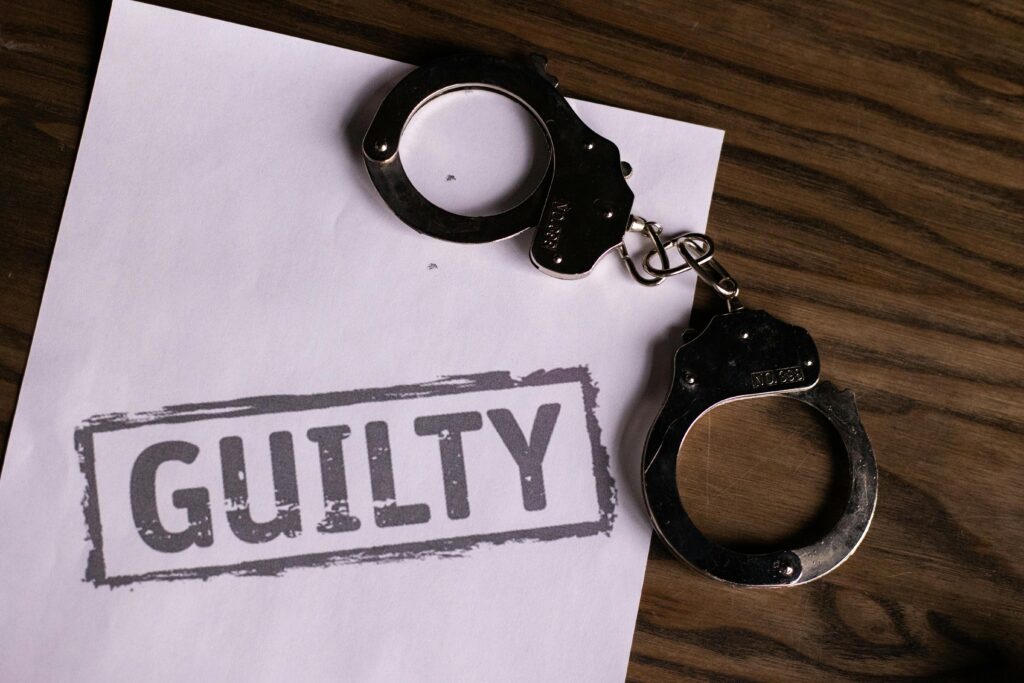The legislation regarding “Spent Conviction” is a blessing in disguise for individuals trying to access a normal life after being tried and convicted in court. Once your penalty is served, you no longer have to conduct your life in restriction or prohibition. The best part is that there’s no need for any application or payment. You serve your sentence in silence, and after a certain amount of time has elapsed, the conviction will automatically be lifted from your records.
But here’s the thing. The laws involving spent convictions are quite complex and not the same for everyone. So, understanding the definition, eligibility, exceptions, and its impacts on your employment, insurance, and travel is vital.
But lucky for you. This article comprises all these topics following the updated Irish law. So, stick with us till the end to fully understand what to expect.
A conviction is a formal declaration that a person is guilty of a criminal offence. It is not limited to a motor offence only, and typically follows a court proceeding. The consequences of convictions can result in various sentences, including fines, community service, probation, or imprisonment.
At first, you are given the chance to accept and surrender. If you choose to appeal, then you will be tried in court, asked for evidence supporting your claims, etc. Only if your attorneys or lawyers fail to defend you will the court consider you a convicted criminal.

A spent conviction is a conviction that, after a specified rehabilitation period and compliance with the sentence, is considered “spent” under Irish law. In other words, the individual is generally not required to disclose it in most circumstances.
Information regarding unspent convictions must be disclosed during job interviews, insurance proceedings, etc. While spent convictions do not generally need to be disclosed, except in specific circumstances such as certain Garda interviews, citizenship applications, or insurance fraud investigations.
Under the Criminal Justice (Spent Convictions and Certain Disclosures) Act 2016, a conviction becomes spent after 7 years (since the commencement of the conviction) if the person has complied with the sentence or order imposed by the Circuit Court. That means once a conviction is spent, you do not have to disclose it in most situations, which gives you a “clean slate” for different types of minor offences.
Convictions become spent after a rehabilitation period, provided the individual has complied with the sentence. The standard period is seven years for adults convicted of eligible minor offences.
Here are the conditions one has to fulfill to be eligible for a spent conviction.
The purpose of Online spent conviction calculators is to help individuals check when their convictions will become spent. You can input history and details of the offence, including the date and type of conviction orders and sentence length.
And, based on the legislation in the Criminal Justice Act, 2016, the calculator will answer your questions. You might get “yes, the conviction is spent,” or “No, it will be spent on xyz date.” However, currently available calculators primarily apply to UK law and may not be fully accurate for Irish law.
Unfortunately, Irish Jurisdiction has provisions that restrict someone’s conviction from ever getting “spent.” if your crime falls under these “exceptions” and you still disclose it during investigation or court proceedings, the Gardai are authorized to arrest you.
Imprisonment Over 12 Months: If the sentence for your seemingly non-violent crime exceeds 12 months in prison, then the conviction can not be expunged. You must report it before getting insurance coverage, a driving licence, a job, etc.
Serious Crimes: For serious crimes, you will be sent to the Central Criminal Court. The crimes can include any sexual offense, dangerous driving, national security offense, causing injury to others, etc. There’s no way for these cases to be removed from your record.
Multiple Offences: Up to one conviction (which you served) can be forgiven. But that’s not applicable for multiple crimes.
Judicial Decisions: The judicial body can choose to exercise its overriding power during a spent conviction process. It can happen if an explanation of your penalty record is in the best interests of people & society.

In Ireland, spent convictions do not need to be disclosed to your employer. And, they can not sue you for disclosing it during the interview process. However, disclosure is required in certain sensitive roles or licensing applications, such as public service vehicles, private security, taxi, and firearms licences.
Additionally, you are prohibited from entering any profession that has any relation or connection to children or people with disability. It is mandatory to disclose all past records during Garda Vetting for these particular jobs. Not disclosing will be considered deceit or dishonesty on your part.
Criminal convictions can affect insurance, but spent convictions do not need to be disclosed. It is not your legal obligation. For car insurance in Ireland, insurers like Power Insurance require disclosure of convictions and penalty points within recent years(3 to 5 years) only.
Insurance companies may have different policies, but legal requirements protect individuals from having to disclose spent convictions to any organisations.
Our advice to you would be to learn the disclosure requirement before committing.
Yes, they do. Some insurance companies might see you as ‘risky” if you have had convictions in the past. Therefore, you will have to pay a higher insurance premium (up to a 50% increase) for the same coverage.
However, when asked, “Do you have any ban, disqualification, or conviction at the moment?” it’s legal to say “NO.” The insurers usually check your recent driving record with the help of the Insurance Link database.
Spent convictions must be disclosed when applying to enter or remain in Ireland, or for Irish citizenship. International travel and visa applications may require disclosure of all convictions, spent or not, depending on the destination country’s regulations.
Spent convictions legislation in Ireland provides a pathway for individuals with minor convictions to move forward without the liability of lifelong disclosure. But we wish the matters were so straightforward. It changes depending on the severity and number of crimes you committed.
Check the Citizen Information Board for more clarity on details and legal implications of a spent conviction. Or, you can go for legal consultation with your attorney or lawyer specializing in criminal law.